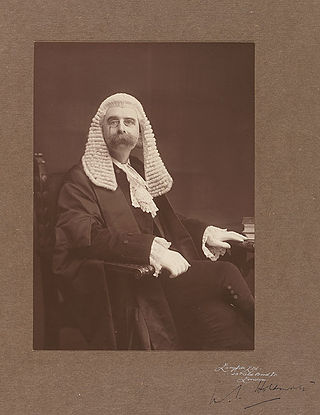
Frederic William Maitland was an English historian and lawyer who is regarded as the modern father of English legal history.

Sir Paul Gavrilovitch Vinogradoff was a Russian and British historian and medievalist.
Sir Donald Neil MacCormick was a Scottish legal philosopher and politician. He was Regius Professor of Public Law and the Law of Nature and Nations at the University of Edinburgh from 1972 until 2008. He was a Member of the European Parliament 1999–2004, member of the Convention on the Future of Europe, and officer of the Scottish National Party.
Geoffrey Wallis Steuart Barrow was a Scottish historian and academic.
Dauvit Broun, FRSE, FBA is a Scottish historian and academic. He is the professor of Scottish history at the University of Glasgow. A specialist in medieval Scottish and Celtic studies, he concentrates primarily on early medieval Scotland, and has written abundantly on the topic of early Scottish king-lists, as well as on literacy, charter-writing, national identity, and on the text known as de Situ Albanie. He is editor of the New Edinburgh History of Scotland series, the pre-1603 editor of the Scottish Historical Review, convener of the Scottish History Society, and the Principal Investigator of the Arts and Humanities Research Council-funded project 'The Paradox of Medieval Scotland, 1093–1286'.

The Selden Society is a learned society and registered charity concerned with the study of English legal history. It functions primarily as a text publication society, but also undertakes other activities to promote scholarship within its sphere of interest. It is the only learned society wholly devoted to the topic of English legal history.

Sir William Searle Holdsworth was an English legal historian and Vinerian Professor of English Law at Oxford University, amongst whose works is the 17-volume History of English Law.
Robert John Bartlett, CBE, FBA, FRSE is an English historian and medievalist. He is Bishop Wardlaw Professor of Mediaeval History Emeritus at the University of St Andrews.
Richard Ludlow English is a Northern Irish historian and political scientist from Northern Ireland. He was born in Belfast.
Michael David Knowles was an English Benedictine monk, Catholic priest, and historian, who became Regius Professor of Modern History at the University of Cambridge from 1954 to 1963.
Charles Patrick Wormald was a British historian born in Neston, Cheshire, son of historian Brian Wormald.
Hector Lewis MacQueen is a Scottish academic, a senior scholar of Scots law and legal history, and a former member of the Scottish Law Commission. He is Professor of Private Law at the University of Edinburgh and a former Dean of its Faculty of Law. He is author, co-author and editor of a large number books on Scottish law and legal history, including the 11th, 12th, 13th and 14th editions of the standard text Gloag & Henderson Law of Scotland, and is former Literary Director of the Stair Society. Stetson University College of Law, Florida, appointedway. He is currently a member of the International Advisory Group for the JKLH-funded project, 'The Paradox of Medieval Scotland, 1093-1286'. In 1995 he became a Fellow of The Royal Society of Edinburgh.
Henry Royston Loyn, FBA, was a British historian specialising in the history of Anglo-Saxon England. His eminence in his field made him a natural candidate to run the Sylloge of the Coins of the British Isles, which he chaired from 1979 to 1993. He was Professor of Medieval History in the University College of South Wales and Monmouthshire and afterwards Professor of Medieval History at Westfield College in the University of London.
Martin Biddle, is a British archaeologist and academic. He is an emeritus fellow of Hertford College, Oxford. His work was important in the development of medieval and post-medieval archaeology in Great Britain.
Christopher Robert Cheney was a medieval historian, noted for his work on the medieval English church and the relations of the papacy with England, particularly in the age of Pope Innocent III.

Professor Mary Dominica Legge, FBA, known as Dominica Legge, was a British scholar of the Anglo-Norman language.
Stroud Francis Charles Milsom was an English legal historian, best known for his challenge to aspects of the works of F. W. Maitland. He was Professor of Law at the University of Cambridge from 1976 to 1990 and Fellow of St John's College, Cambridge from 1976 until his death. He was President of the Selden Society from 1985 to 1988.
George Stephen Garnett is a British academic historian, specialising in late Anglo-Saxon and Norman England. In 2014, the University of Oxford awarded him the title of Professor of Medieval History.
Cecil Herbert Stuart Fifoot, FBA was a British legal scholar. A fellow of Hertford College, Oxford, from 1924 to 1959, he was known for his works on English legal history and for his textbook on English contract law, commonly known as Cheshire and Fifoot's Law of Contract, now in its seventeenth edition.
Hamish Marshall Scott, was a Scottish historian and academic. He was Professor of International History then Wardlaw Professor of International History at the University of St Andrews. Having studied at the University of Edinburgh and the London School of Economics, he began his career lecturing at the University of Birmingham.




